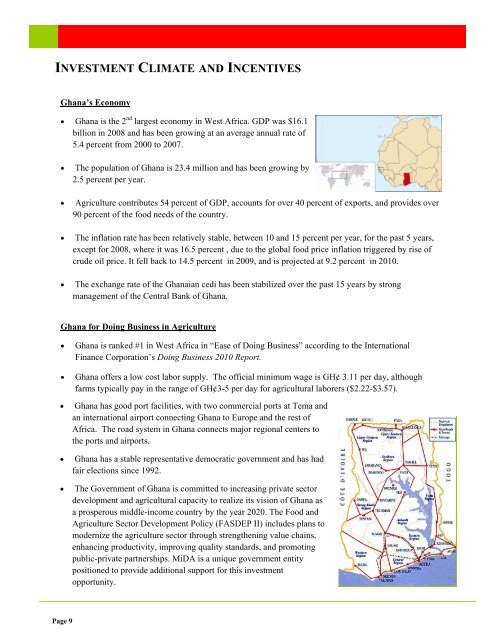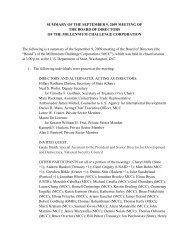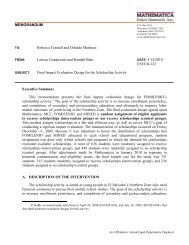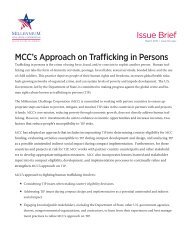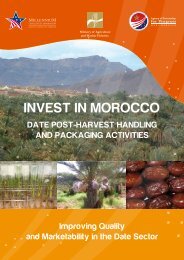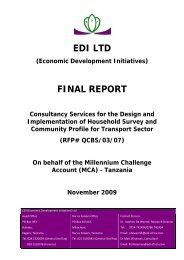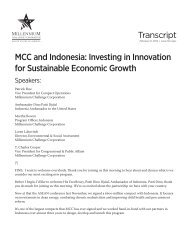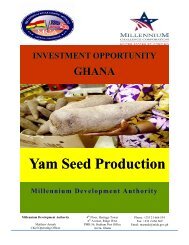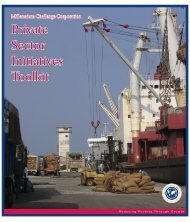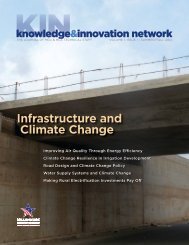Chili Pepper Production - Millennium Challenge Corporation
Chili Pepper Production - Millennium Challenge Corporation
Chili Pepper Production - Millennium Challenge Corporation
Create successful ePaper yourself
Turn your PDF publications into a flip-book with our unique Google optimized e-Paper software.
INVESTMENT CLIMATE AND INCENTIVES<br />
Ghana’s Economy<br />
�� Ghana is the 2 nd largest economy in West Africa. GDP was $16.1<br />
billion in 2008 and has been growing at an average annual rate of<br />
5.4 percent from 2000 to 2007.<br />
�� The population of Ghana is 23.4 million and has been growing by<br />
2.5 percent per year.<br />
�� Agriculture contributes 54 percent of GDP, accounts for over 40 percent of exports, and provides over<br />
90 percent of the food needs of the country.<br />
�� The inflation rate has been relatively stable, between 10 and 15 percent per year, for the past 5 years,<br />
except for 2008, where it was 16.5 percent , due to the global food price inflation triggered by rise of<br />
crude oil price. It fell back to 14.5 percent in 2009, and is projected at 9.2 percent in 2010.<br />
�� The exchange rate of the Ghanaian cedi has been stabilized over the past 15 years by strong<br />
management of the Central Bank of Ghana.<br />
Ghana for Doing Business in Agriculture<br />
�� Ghana is ranked #1 in West Africa in “Ease of Doing Business” according to the International<br />
Finance <strong>Corporation</strong>’s Doing Business 2010 Report.<br />
�� Ghana offers a low cost labor supply. The official minimum wage is GH¢ 3.11 per day, although<br />
farms typically pay in the range of GH¢3-5 per day for agricultural laborers ($2.22-$3.57).<br />
�� Ghana has good port facilities, with two commercial ports at Tema and<br />
an international airport connecting Ghana to Europe and the rest of<br />
Africa. The road system in Ghana connects major regional centers to<br />
the ports and airports.<br />
�� Ghana has a stable representative democratic government and has had<br />
fair elections since 1992.<br />
�� The Government of Ghana is committed to increasing private sector<br />
development and agricultural capacity to realize its vision of Ghana as<br />
a prosperous middle-income country by the year 2020. The Food and<br />
Agriculture Sector Development Policy (FASDEP II) includes plans to<br />
modernize the agriculture sector through strengthening value chains,<br />
enhancing productivity, improving quality standards, and promoting<br />
public-private partnerships. MiDA is a unique government entity<br />
positioned to provide additional support for this investment<br />
opportunity.<br />
Page 9


